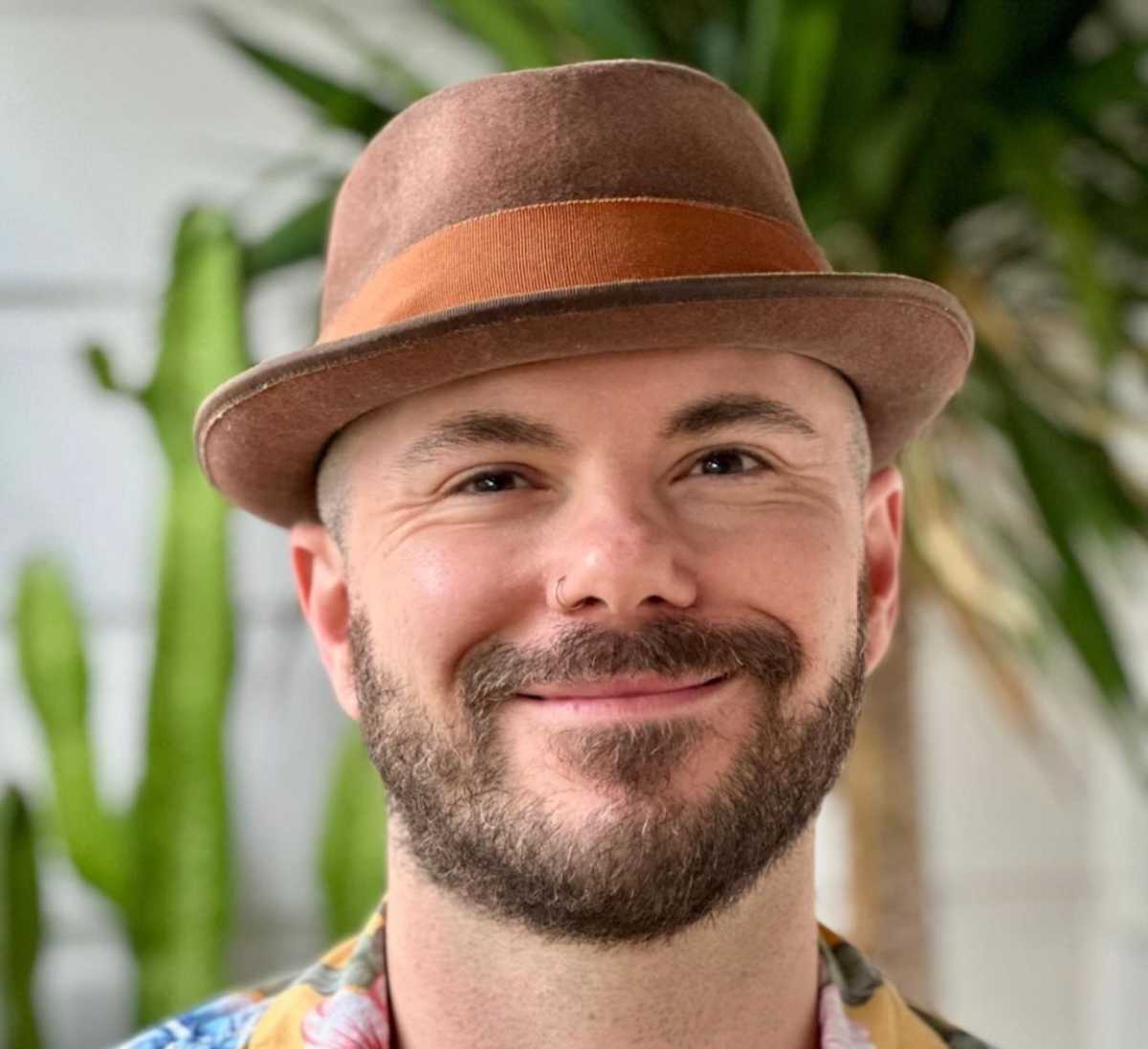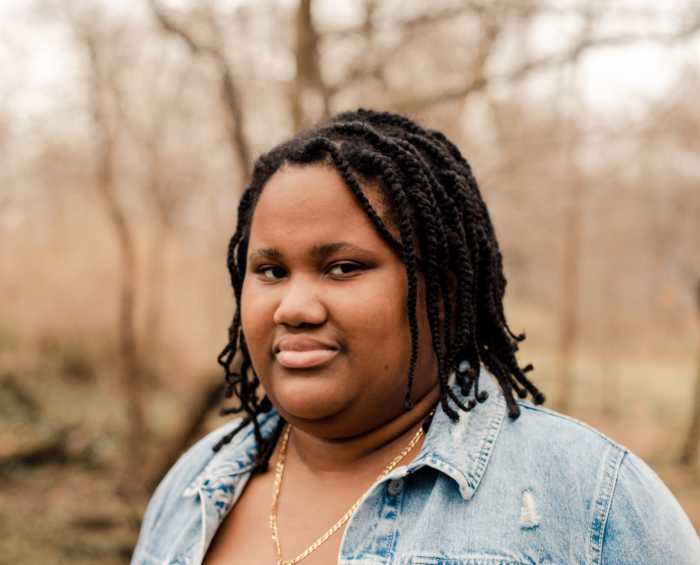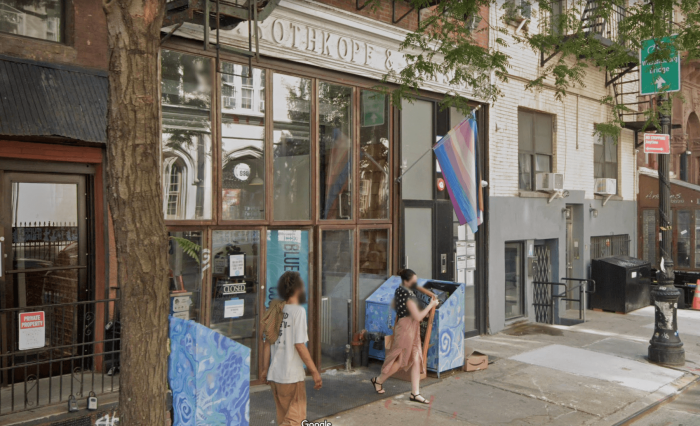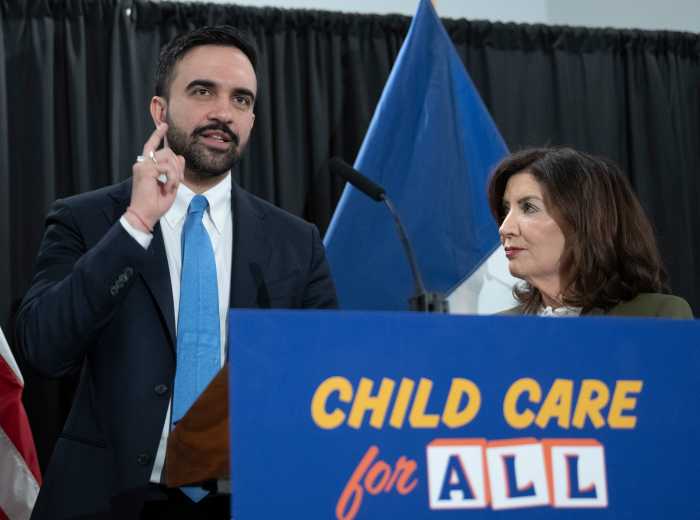An 18-year-old Alabama teen hoped to get top surgery in time for his prom. A 17-year-old in Illinois first came out to his mom with a baby shower greeting card that read “Congrats, it’s a boy!” And a 16-year-old in Pensacola came out as non-binary in a Walmart parking lot, telling their mom, “I’m not a chick, but I’m not a dude either.” These are the stories of young people expressing the gender they knew they’ve always been — not the one they were assigned at birth.
Trans kids tell us who they are in “American Teenager: How Trans Kids are Surviving Hate and Finding Joy in a Turbulent Era” by the award-winning journalist Nico Lang, who identifies as non-binary and uses they/them pronouns. Lang has been covering the transgender community’s fight for equality for more than a decade.
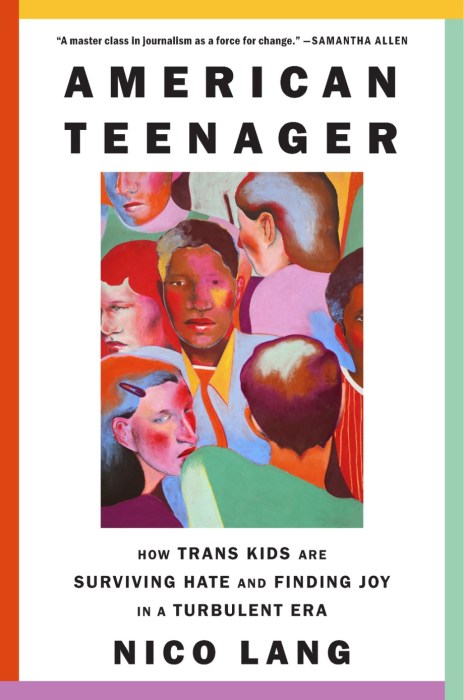
A stunning nonfiction book that documents the lives of eight diverse teens across the United States, “American Teenager” is laid out in chronological order, with Lang interviewing seven families in seven states. Reporting from conservative red states like Alabama, Florida, South Dakota, West Virginia, and Texas, to the more liberal enclaves of Illinois and California, the book is astonishing journalism that takes you into the young lives of Wyatt, Rhydian, Mykah, Ruby, Clint, siblings Augie and Jack, and Kylie.
Despite its sprawling personal stories and essential context on cruel legislative efforts being made across the country, like efforts to limit gender-affirming care, prosecuting parents who provide that care to their kids by criminalizing it as “child abuse,” and banning trans youth from participating fully in public schools, the book still felt intimate, offering a rare look into the whole lives of transgender, non-binary, and gender non-conforming youth and their families.
Lang is a sharp and empathetic observer, with keen emotional insights. They listen compassionately and always defer to their young subjects. When a gender-fluid teen from West Virginia asked Lang to use a different pronoun (he, she, they) in each of their chapters to reflect “all facets of their identity,” Lang did so. The book is rich with details specific to the state of adolescence in America, making shoutouts to favorite TV shows and video games and bands, while also tallying the number of anti-trans bills that have been passed by lawmakers across the country in recent years, and providing the hard-to-read statistics of murdered transgender people. (According to Lang’s reporting, more than 240 transgender people in the U.S. have been murdered since 2016.)
A number of the teens in the book are tireless advocates for themselves and others, hard at work at building community at summer queer camps, or engaging lawmakers in their state capitols, or attending pride events and support groups. The book underscores the tireless need for advocacy and education.
Others, with admittedly adolescent ambivalence, shrug off the pressure to be public trans ambassadors. Clint, for instance, the teen from Illinois, just wants to be known as a boy. While he felt it was “important to tell other kids that being trans doesn’t have to define them, or be the most important part of their life, it can just be one small aspect of the messiness that makes them human,” he admitted that after this book project, he “never plans to engage in any form of LGBTQIA+ advocacy again.”
Some teens just want to live their lives and grow up. As every teen should have the right to do.
‘American Teenager: How Trans Kids are Surviving Hate and Finding Joy in a Turbulent Era’ | By Nico Lang | Abrams Books

